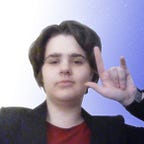Achieving Little Girl Dreams
When I was a young child, I had the same dreams and desires as many little girls. I wanted to be a nurse and a vet and a teacher. I wanted this toy and that candy and a puppy, too, while I was at it. I wanted to be a fairy. I wanted to be a knight.
Well, all the other once-little-girls know how it works. I realized hospitals were smelly and stressful and nurses worked long, tiring shifts. (I learned that at my father’s feet, trotting after him in corridors, watching and learning how to minister.) I met enough teachers, and realized I could see right through them and they could see right through me, but not in the way that I wanted. (I knew what they didn’t want me to. They never looked at me and stopped; I was a window. Sometimes with bird poop, but still. Transparent. Invisible.)
I didn’t get the toy or the candy. I did get a puppy, though. She was an informal ‘companion dog,’ because service dogs were too expensive, and I loved her more than anything because she loved me back. I didn’t tell her what to do, I lay down on the floor next to her and agreed with her whined protests. It isn’t fair, you’re right, sweetheart. I know, I know. I got you, though.
I did become a fairy, and I did become a knight.
Let me explain. In medieval times, in Europe, people believed in ‘faerie folk’. One manifestation of this belief was changeling lore. ‘Changeling children’ were faeries that had secretly replaced human babies with themselves, stealing the original child. In actuality, they were little, human children, who didn’t behave and appear how their parents and communities wished them too. Children like me, then.
Such a narrow view of humanity, which suggests that a person every single bit as human as any other (able-bodied, or neurotypical, or -) human is ‘fae’ or ‘monstrous’, is — well, it creates a double narrative. We are every bit as human. We are also, because definitions are something humans make, and definitions are meanings, and if your meaning of human excludes people like me, and your meaning of ‘fae’ or ‘monstrous’ includes me, ‘fae’ or ‘monstrous’. That’s how words and definitions work. I am human, but you can’t say I’m not a changeling, not a faery. I fit the lists of signs and definitions; I could fit within that, and neither you nor I can prove otherwise.
An argument might be posed that I am not, in fact, magic. What about Clarke’s law, stating that “any significantly advanced science is indistinguishable from magic”? aren’t we all magic, based on that? Another argument could point out that my parents are, in fact, my biological parents. However, I was IVF. I came to my parents after being made, or brought into being, by other people (thanks to significantly advanced science, aka magic), and given to them to raise as their own. I am human. I surely am. So was every other poor child murdered for being a changeling.
An argument might be posed that these children were not, in fact, changelings, but …. weren’t they? How was ‘changeling’ defined? Didn’t they fit the definition?
So, as far as I am concerned, I’m a changeling and thus a fairy.
As for how I am a knight?
Well, I’ve never met and knelt before Elizabeth II, Queen of the United Kingdom of Great Britain and Northern Ireland and of her Other Realms and Territories (that’s me! The ‘other realms’! Hello from Australia), nor had her sword pressed twice against my neck. I am not a knight in the literal sense. I do like to think, however, that I am a knight metaphorically.
This goes back to fairies again. Fairy tales, precisely.
Here, I am borrowing with great thanks the definition of a fairytale knight from Elsa Sjunneson, who wrote it here. (In the same article, she says that when she was a child she wanted to be a knight, and arrived at the same conclusion as I — she had achieved that dream.)
To me, in the genre sense, a knight does these things:
They slay dragons.
They are brave for those who cannot be.
They take up impossible challenges.
They protect those who ask for it.
Let us take this definition, of somebody who battles great evil, who is brave for other people, who attempts the impossible with every intent to succeed. Who protects other people. I am a disability activist and autistic self-advocate. I do these things, and I do them near daily. I am a knight.
I am a fairy. I am a knight. I am coming to protect these other girls, and to show them what we can be.
